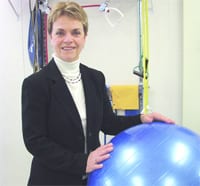Reducing Hours Of Residents Doesn’t Solve All Problems
The Accreditation Council for Graduate Medical Education made what would appear to be a sound, logical move recently when it voted to establish an average 80-hour work week for residents, who have historically worked more than 100 hours per week.
After all, many inside and outside the medical community have been saying for years now that the long weeks and 36-hour shifts that residents have been required to work haven’t been good for the residents — or their patients. In this era of managed care, the theory goes, doctors are seeing sicker patients, and they’re seeing more of them. Therefore, they should be sharp when they treat them. As for the residents themselves, it’s hard to learn when you’re exhausted.
But will this move to restrict residents’ hours make patients any safer? And will it make doctors-in-training any better at what they will eventually do for a living? These questions and others like them show that the problems involved with simultaneously training residents and treating patients can’t be addressed by merely limiting residents’ hours to some arbitrary number.
Indeed, the council’s new regulations throw a mountain of expensive logistical problems into the laps of hospital administrators who are fighting an uphill battle to meet the public’s demand for quality health care at a time when many hospitals are merely fighting to survive.
In short, the council’s new regulations — which take effect in July 2003 — generate more questions then they do answers.
First, some historical perspective is needed. Medical residents have always worked long hours and endured shifts that last anywhere from 24 to 40 hours or more.
There have been questions for decades now about whether working residents so hard and so long is beneficial for them and their patients.
The matter has come to a head in recent years amid alarming statistics about medical errors and the harm they cause. Some of these mistakes have been made by residents, and the common assumption is that they were made, at least in part, due to fatigue.
Reacting to the problem, individual states have taken matters into their own hands. New York, for example, passed legislation limiting most residents to 80 hours per week — leaving narrow amounts of room for exceptions such as surgical residents — and other states, not to mention the U.S. House and Senate, are considering similar measures.
It is perhaps out of fear that states might impose even more stringent regulations that the Accreditation Council moved to set the bar at 80 hours per week.
In doing so, the council has reacted responsibly to changes taking place within the health care community, said its chairman, Dr. David C. Leach. “We think health care needs a major redesign. We think the new standards will provoke major rethinking on the part of health care institutions.”
In realty, though, we believe the council has merely drawn an arbitrary line in the sand and left the “redesigning” up to hospitals, which is probably not a good thing. In other words, if the council is going to limit residents’ hours to 80, it must make help make sure that those hours are spent doing things that further their education.
Residents have always been called upon to do grunt work — everything from drawing blood to shuffling paperwork — and while such tasks are necessary given the cutbacks in support staff at all hospitals, they don’t make the resident a better doctor.
Residents we spoke with this month (see cover story) all acknowledge that there is a fine line between working residents hard and working them too hard. Most of the people we spoke with had ‘off-the- record’ stories about people falling asleep while on the job or being so fatigued that they were probably not in a state to treat anyone adequately.
While some went to so far as to say they’re glad they were residents when the 120-hour work week was part of the experience, most said some restrictions are, in fact, necessary. But they, like the doctors that train them, wonder if their training will be as complete if their hours are restricted.
As we said at the top, it is logical to assume that someone working 80 hours a week will be less fatigued — and therefore less likely to make mistakes — than someone working 100 or 120.
But if the council really wants to redesign health care, as Leach put it, then it must do more than merely limit residents’ hours.


Comments are closed.